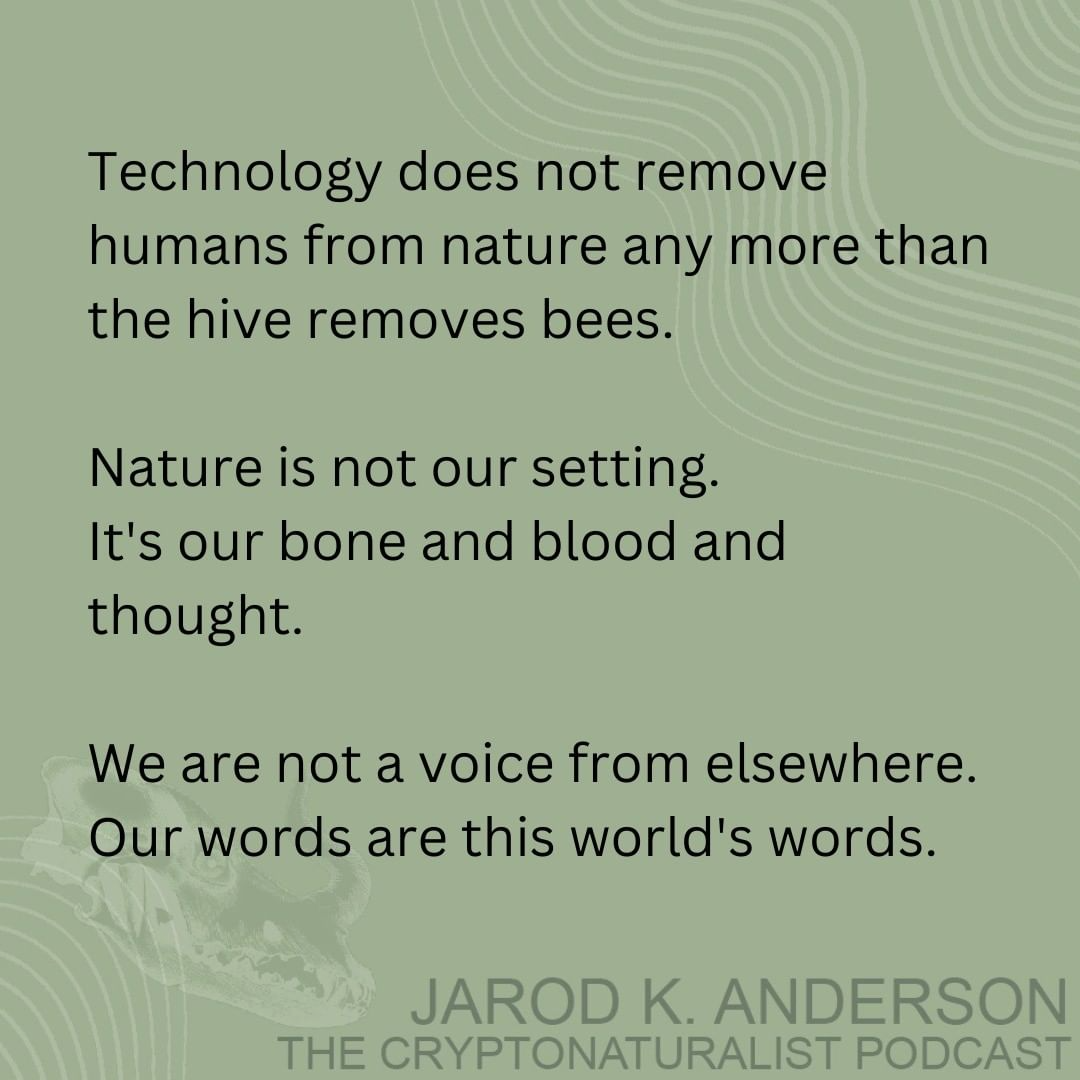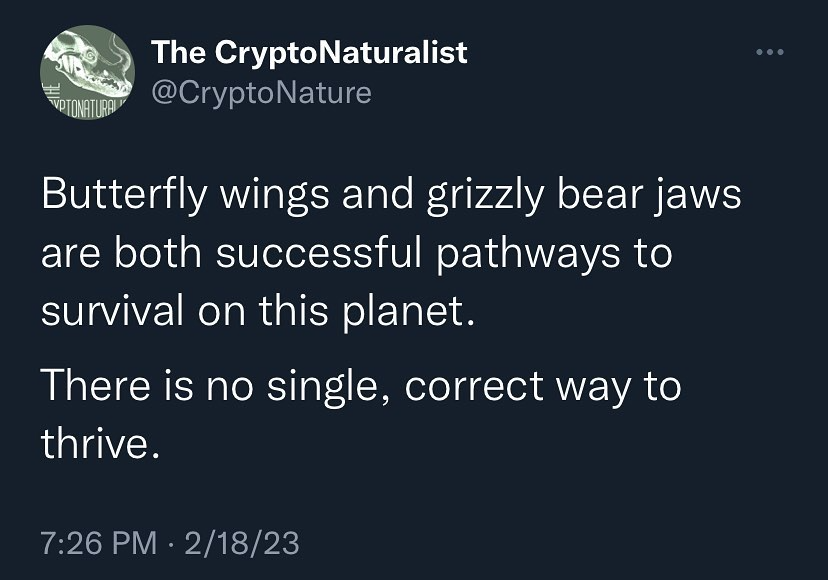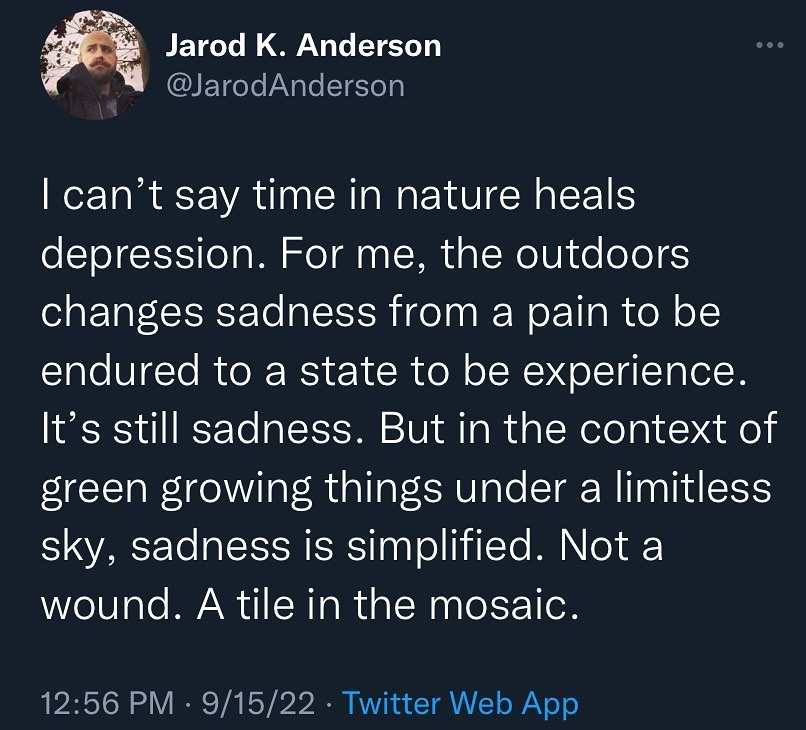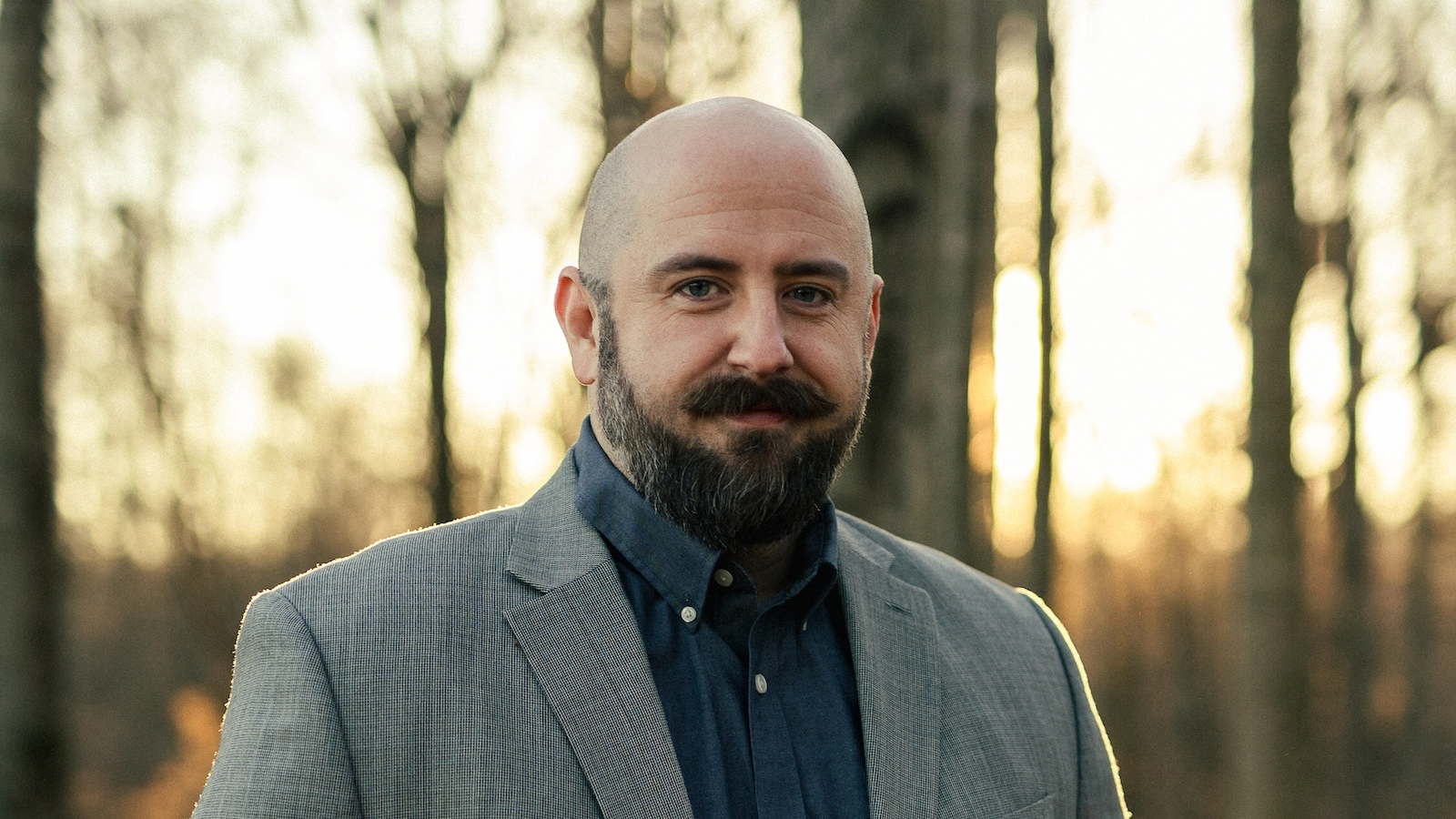Reared in the church of the woods and rooted in a passion for playfulness, writer and poet, Jarod K. Anderson—popularly known as The CryptoNaturalist—has crafted a career guided by his inner North Star.
Anderson once trod the academic path, though eventually chose another. Following this transition, he began carving out pockets of time to write about the things that he loved. It was in this self-made oasis, that The CryptoNaturalist Podcast was born.
Executed as an audio drama, each episode is guided by The CryptoNaturalist—a folksy expert on cryptids, or hidden creatures in nature (think Big Foot).
“The show presents new and amazing animals, otherworldly locations, earnest love for the natural world, featured fiction and poetry from talented guest contributors, and field reports from fascinating experts on strange nature,” Anderson says.
While hitting a stride with the podcast, he also began flexing into his poetry in a new way. Anderson began bucking poetic conventions and took to posting his musings on his social media channels. The response has been overwhelmingly positive.
So much so, that his first poetry collection was published in response to his community requesting it.
Since then, another has followed, with more on the horizon yet to come.
In a recent interview with Kinute, Anderson sat down to discuss his relationship with the natural world, his writing and community, and his latest creative projects.

Jarod K. Anderson | Provided photo
Tell us about your relationship with the natural world and how it has evolved throughout your life.
I was raised by agnostic parents and didn't have much organized religion in my life, but my mother, as early as I can remember, took me on nature walks every day and would refer to the woods as her church. So, I have spent my entire life trying to pay attention to the world around me and going to the woods as a place of comfort and contemplation and solace.
I’ve had a lifelong struggle with mental illness and depression, and I've always found that being in natural spaces has been incredibly helpful for me to re-anchor myself and feel a connection to something wider and broader and vital that I find very nourishing. I honestly don't remember a time without that.
I find nature to be kind of a source of my central philosophy. I find it to be medicinal. I find it to be the foundation of meaning-making in my life.
You’re as anomalous as the cryptids you explore in your podcast—you're a modern, successful, nature poet who has a large online following. How do you reflect on the success you've found, and how do you balance your needs to be both immersed in nature and to produce regular online content?
I sometimes jokingly refer to social media as my internet chores, and sometimes I don't do my internet chores. My mental health struggles don't help—I have ADHD and chronic major depression, so I'm a little bit all over the place naturally.
The success of the poetry has been odd—I kind of accidentally got my dream job. But it's still a job, and I still try to treat it like a job. I was working in academia, and then at some point decided I didn't want to be in academia anymore, and I went into marketing.
The CryptoNaturalist podcast and the poetry was my attempt to compartmentalize and leave some space for me to do whatever I wanted to do. I set these things aside as this little compartment for me to be me and express myself outside of work and marketing and academia and anything else. As that grew and grew there was a shift of, this isn’t just for me, now it's also a product.
I would post because I like to have conversations with folks, and I feel like it's important to talk about mental health and to talk about connection with nature and I feel like writers and storytellers have an important role to play.
Thinking of myself as a professional is evolving. There was a space I made for play, for myself, that then kind of became work, but it has to remain play or it doesn't really work for me—so that's the balance I'm constantly searching for.

Why did you want to lift your fictional works from the page and give them life through a podcast?
I very much love audio fiction. I love audiobooks. I love to take long walks and listen. Then I discovered scripted podcasts. It struck me at some point that—wow, you can create a lot of world through an audio medium, with just a little bit of sound effects and just one voice. There's something intimate about having somebody speak a story into your ear, and I've just been swept away by that experience so many times that I started to play with the idea of doing my own podcast. I sensed a lot of magic in this thing, so I want to try my hand at it.
In the introduction to your poetry collections, you acknowledge that some of what's found there isn't within the bounds of what’s traditionally considered poetry. Do you think that’s the job of an artist—to always be pushing into new territory?
I think my background in academia is where that semi-disclaimer came from. I used to write more academic poetry and I would aim to publish in academic journals. When I was doing my masters in literature, I hung out with the creative writing students because I always thought they were more fun. But it always sort of bugged me that I would say something about a local coffee shop having a poetry reading, and I always sensed this general [response of] well, we don't mix with civilians. I found myself, over the years, pushing back against that. I once said to someone that I write belligerently accessible poetry. At first, I felt like I wrote poetry where I wanted [people] to think that I'm smart, and now, I want to communicate, I want to share an idea, I want to make a connection. I feel like my poetry collections reflect something integral about me.

Can you talk about the community that sprung up around you and the support you've felt for your work.
It's been wonderful and it's been motivating and inspirational. Depression will often tell you that there's no point in doing anything, so feeling like I have a community, and that I'm in conversation with folks means the world to me, just in terms of sitting down and deciding to communicate, deciding to put thoughts down on paper. I feel an immense sense of satisfaction when somebody writes to me and says, I've struggled with mental illness and don't know how to talk about it, and you've helped me figure out how to talk about it, how to articulate it.
Do you have any advice for aspiring writers?
There's an interesting thing I see crop up around the idea of permission in the correspondence I receive. It kind of dovetails with connecting with nature. I have received more than one message where somebody said, I really want to go out into the woods and explore but I wouldn't know what I was looking at. It's simultaneously sad and almost a little humorous to me. As if any of the trees or animals care if you know their Latin name. Just go, and the learning can follow.
Sometimes I receive parallel messages about writing or poetry, like, I really want to write poetry, are there any courses you would recommend? I feel that at the core of what they're asking is, for permission. I try to emphasize play. Have an idea and then play with language around the kernel of that idea—see what language can do, put limitations on yourself and then see how you can play within those limitations. That's the fun—beyond connecting and being a conversation. I feel like it has to be play, if you want to do anything like poetry in an enduring way—because play is nourishing.

Do you have a favorite place in nature?
I love the deep woods. That's where I go when I feel like I really, really need it. I'm also trying in my own life and thoughts to not set up a false economy between what counts as real nature, and what doesn't. Just being under the sky, for me, is nature. I live next to a cemetery, and walking in the cemetery and looking at the stones or moss or seeing what mushrooms came up because it rained yesterday. I love the deep woods, but more and more I'm trying to bring an intentionality to seeing that my own body is as much nature as any oak tree I find in the middle of a deep forest—and that's the same with a dandelion coming up through a sidewalk. That kind of noticing of nature and the commonplace means that we find ourselves in nature a lot more frequently, in a way that is very helpful for me because then my support, my medicine, my philosophical anchor is always with me.
What's on the horizon for you creatively that you're most excited about?
I have a book coming out in October next year. It's a non-fiction book through Timber Press. It's a personal narrative about my lifelong struggle with depression, and how nature has informed that struggle. That book is called Something in the Woods Loves You.
That's amazing. Congratulations.
Thank you. I'm very excited about it, and I'm proud of it. It's a different kind of writing than I've done before. It was sort of intense and personal, and poetry is so much a part of how I interact with nature. There was a lot of poetry involved in that book.
And I have a third poetry collection that I'm sanding the rough edges off of. It's coming soon as well.
Then I’d like to get back to the podcast. I've been kind of on hiatus. It might sound silly but, the podcast is often my recreation. I’ve hit the limits of my energy with these other projects, but things are calming down a little bit and I'm looking forward to getting back into my podcast world in the next couple months.
You can keep up with Jarod on Instagram and Facebook, and listen to The CryptoNaturalist Podcast at his website, or wherever you listen to podcasts.

